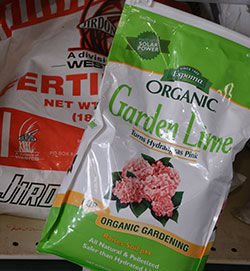Renewed concern about the environment has stimulated interest in the use of organic fertilizers. A significant advantage of organic products is improved organic content in the soil which is key to successful gardening in Colorado soils.

Organic fertilizers are commonly processed from such things as manure, worm castings, peat moss, decomposed plants, fish meal, and feather meal. Organic fertilizers release nutrients at a slower, more consistent rate, avoiding problems such as fertilizer burn. Organic fertilizers break down into humus that builds the soil structure and moisture- and nutrient-retaining capabilities.
Organic fertilizers provide environmentally friendly macro and micro plant nutrients that are released as the organic matter decays. Organic fertilizers nearly always have lower concentrations of nutrients. If lawns and gardens appear pale green, nitrogen might need to be supplemented.
Inorganic or commercially manufactured nitrogen fertilizers are normally made from petroleum or natural gas. Typical release rates vary from a few days to a few weeks, giving a quick response after fertilizer application. The phosphate and potash in manufactured fertilizers generally are processed from rock deposits.
Because manufactured fertilizers are relatively high in nutrient content, only small amounts are required. Applying too much can cause leaves to become yellow or brown, which is sometimes known as “burning.” On sandy soils, an overapplication of nitrogen can leach into groundwater.
Both types of fertilizer can pollute groundwater, lakes and streams when spilled or spread onto streets, sidewalks and driveways. Neither will pollute when correctly applied to lawns and garden soils.
For more information, see the following Colorado State University Extension fact sheet(s).



